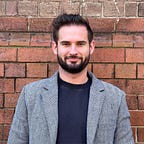4 principles I’ve discovered about the learning habits of successful people
Keeping ahead of the curve in the 21st century is not an easy task, as industry changes at an accelerating pace and our lives become increasingly complex.
Successfully keeping pace with that change requires us to constantly update our mental software across a broad range of areas, while somehow maintaining our work and personal life as well.
How do people find the time to keep up-to-date in the midst of their busy lives?
Most people these days simply don’t have time. Some find time — usually turning to online courses — albeit briefly — as a quick fix. After all, they’re plentiful, easy to access and affordable.
They sign up with the best of intentions, but soon they find their course falling on the wayside as life’s other priorities take over.
Net result: they have learned a fraction of a skill and are left feeling guilty about not completing the course.
Fortunately, I think there are ways of learning outside of these traditional education and e-learning models which take up way less time, are cheaper, and lead to much better outcomes.
I’ve learned this over the past 2 months, after interviewing dozens of smart, successful people in the realm of business and tech, coming out with some fascinating findings about their learning patterns. Here are a few of them:
Their learning is algorithmic
Most healthy habits are hard to keep up. This is because they don’t usually bring immediate pleasure or results.
The people I interviewed spoke of struggling to consistently wake up early, meditate, exercise, eat well, and yes, learn, at least at some point in their lives.
With learning, what proved effective was to make the practice algorithmic. In particular, they taught their brains to associate different parts of their day with learning — making it an automatic practice, just like checking your phone first thing in the morning is.
It was common to making learning automatic by stacking it with other habits, like during a daily run, commuting, or in bed at the end of the evening.
They absorb content in the moments between things
Most people knew that some of their ‘busy’ time was used on things that didn’t bring them any utility — ie, scrolling through Facebook mindlessly, while waiting for the bus, or standing in line.
They recognised that sometimes this allowed them to decompress from their day, but other times, they replaced those moments with reading, listening to podcasts, or watching videos that would help them be better in their work.
They believe taking in content isn’t enough
Another common thread was that these people understood that practice makes perfect, and, to the contrary, mindlessly consuming content doesn’t make perfect.
For this reason, they tended to take in a minimal amount of information before getting started on something.
They believed that taking in too much content led to inaction and paralysis, tending toward implementing their learnings quickly. This was seen as key to making them stick.
Their learning is social
This group of people knew the process of learning is painful, and it’s hard to keep it up without being connected with peers and experts to support their development.
They saw peers as having empathy for their struggles, and keeping them accountable in the moments they wanted to give up.
They also sought out experts who they could ask questions of, and get feedback from when they got stuck!
Summary
- Make learning algorithmic
- Supplement social media habits with learning habits
- Learn the minimum amount before executing
- Learn with experts and peers
These are just a few insights that came out of the process — hopefully they are helpful to you.
If you have unique hacks that have helped you learn more effectively, I’d love to hear from you!
Cheers,
Jacob — Masterly.
The insights from this interview process have formed the foundation for our v2 product at Masterly — a bite-sized learning membership for busy people!
